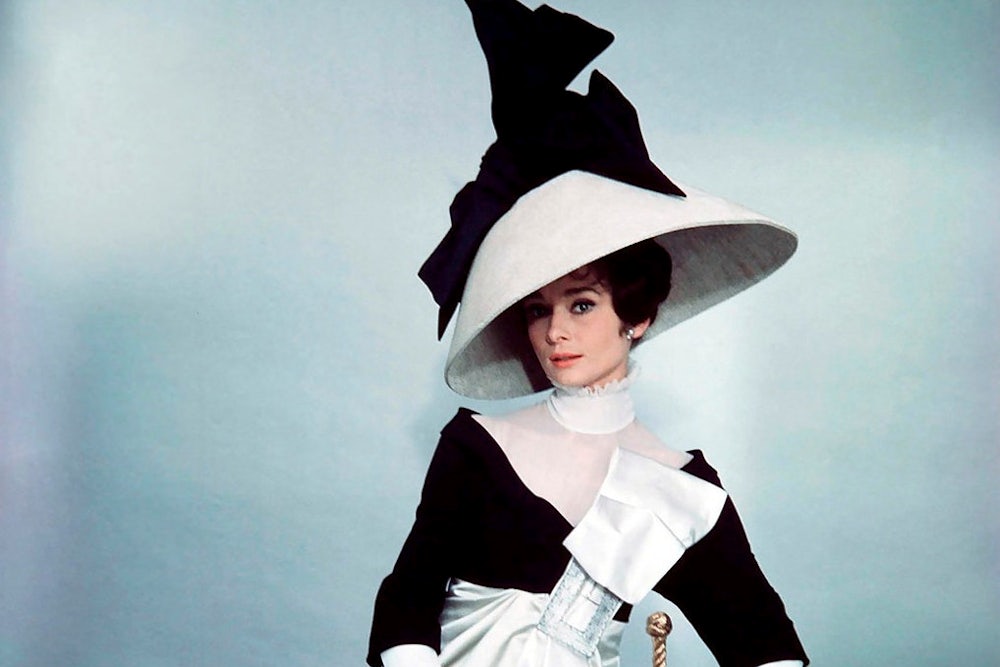The film of My Fair Lady is worth every penny of the $17 million it reportedly cost because it preserves Rex Harrison’s performance. Whatever one thinks of the musical, of the very idea of the musical, his performance is clearly a flower of artistic elegance with its roots in three-hundred-year-old comic styles, a miracle of ease that results from a lifetime’s training of superb talents. One had only to see others in this part to see a) imitators of him; b) actors who had stepped into it rather than grown into it, relying mostly on superficial suavities. Harrison is so rich in the role that, even in this musicalized version of Higgins, he gives us a small intellectual-social history.
This is not to delimit him to comedy; no one familiar with his career would believe it. But even in serious roles, his methods derive from his comedy perceptions and techniques (as is true of Guinness, as is not true of Olivier). For this reason he is par excellence a Shaw actor, and it is an artistic crime that, besides his Cusins of some years back, we have not had his Tanner, his Ridgeon, and a non-Mankiewicz Caesar.
Among the others in the cast the two eminent performances are Mona Washbourne’s housekeeper, starchy enough to be a comic comment without verging on caricature, and Gladys Cooper’s Mrs. Higgins, giving us in a smaller role a smaller measure of Harrison’s qualities. Audrey Hepburn, as Liza, is frequently appealing, sometimes looks young enough, and is never downright poor; but she has long been accustomed to tailor-made roles and she tries to tailor Liza to herself as she goes. It is one thing for an actress to infuse a role with her personality, quite another to make the role a showcase for a personality. Miss Hepburn often tries to supply what her fans expect.
Her initial cockney accent is insecure. When Harrison reads her lines from phonetic transcription, he sounds the way she ought to have sounded. Also, when her songs occur, it is not always unnoticeable that another voice takes over for her.
Cecil Beaton, that transmigrated Yellow Book soul, has designed gorgeous costumes, especially the ladies’ hats—clothes that make metaphor out of mode. His scenery is less successful. The outdoor sets contrast a somewhat stagey feeling with the interiors which are realistically noodled within an inch of their inhabitants’ lives. George Cukor’s direction is like a rich gravy poured over everything, not remotely as delicately right as the Asquith-Howard Pygmalion. It is at its worst in the heavy handling of Stanley Holloway’s musical numbers. Presumably, too, Cukor is responsible for miscasting Wilfred Hyde-White, a good actor, as Pickering, who should be more staunch, blunt, courtly. Was John Williams not available?
The songs by Alan Jay Lemer and Frederick Loewe, excepting the servants’ banal “Poor Professor Higgins” litany, still sound pretty and clever, Lerner’s screenplay spells out the last bit of suggestive transition that his stage version had retained. Despite all reservations expressed, I must make clear that his fantastically successful show has been converted into a generally entertaining film. But—as against the play from which it was taken—the word “great” has, as usual, been too generously applied. Only Harrison’s performance begins to deserve the term. His first name has never seemed more apt.
